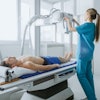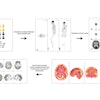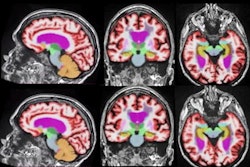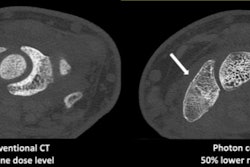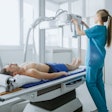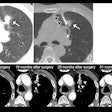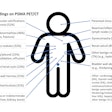Dear Digital X-Ray Insider,
X-ray may be the oldest modality in radiology, but in certain ways its potential is just beginning to be developed -- particularly in chest imaging. For instance, researchers recently tested a prototype vector-field dynamic chest x-ray (VF-DXR) system that can be used to measure airflow in patients with chronic obstructive pulmonary disease (COPD). Read about it in this edition's Insider Exclusive.
Also, researchers are exploiting the fundamental properties of x-rays in dark-field chest x-ray imaging, a new technique achieved by modifying existing x-ray systems. One recent study showed the potential of dark-field chest x-ray for diagnosing emphysema.
Meanwhile, German and Hungarian researchers are advancing a novel x-ray image processing technique called digital variance angiography. The method appears to improve image quality while reducing radiation exposure in patients undergoing prostatic artery embolization.
It's no mystery that chest x-ray datasets are being tapped in a big way in the field of artificial intelligence (AI) research. We're keeping up with myriad studies, particularly as they apply to the COVID-19 pandemic, such as the following:
- An AI algorithm can help radiologists better detect pneumothorax on chest radiography in patients after lung biopsies.
- An AI algorithm could be utilized in low-resource settings to stratify a patient's risk of having COVID-19 based on their chest x-rays.
- An AI algorithm can identify racial or ethnic health disparities in COVID-19 patients based on the analysis of chest radiographs.
Dual-energy x-ray absorptiometry (DEXA) also appears suited for AI research efforts, as seen in the stories listed below from the RSNA 2021 meeting in Chicago:
- Researchers have developed an AI model called DXA-Age that yields biological age estimates and may predict incident morbidity and mortality beyond chronological age, body composition, bone density, and risk factors.
- Changes in body composition over time can be identified on total-body DEXA exams by AI algorithms and help to predict mortality risk, according to researchers at two Harvard-affiliated hospitals in Boston.
Finally, coverage of x-ray imaging can take a turn from research to the seedy side of things. We recently reported on a senior orthopedic surgeon who tried to sell an x‑ray of a concertgoer who was shot during the 2015 terrorist attack on the Bataclan music venue in Paris.
Be sure to check back often for more news in your Digital X-Ray Community!

